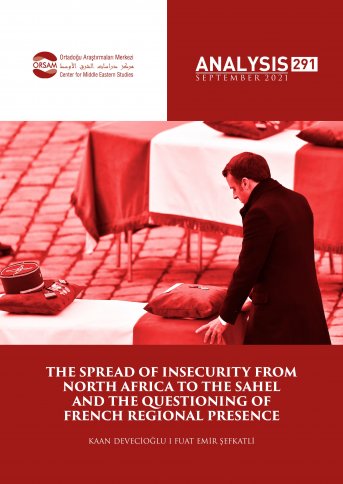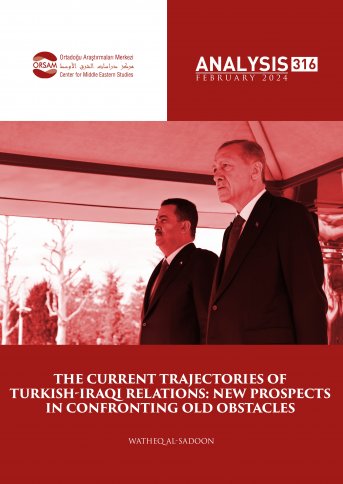
The Spread of Insecurity from North Africa to the Sahel and the Questioning of French Regional Presence
Today, the global security agenda is concentrated on countries such as Afghanistan, Syria and Iraq, especially within the context of non-state actors. This is also the case for some countries in the African region. Particularly, the developments in the region called the Sahel and the impact of global actors are worthy of attention. From a historical point of view, the environment of insecurity spreading from North Africa to Sub-Saharan countries has created a struggle for influence over countries such as Mauritania, Mali, Chad and Niger, in which actors such as the US, France, Russia and China are directly or indirectly involved.
Terrorist activities in the Sahel belt, which includes nine countries from Senegal to Eritrea, are generally concentrated on the borders of Mali, Burkina Faso and Niger, and in the north of Nigeria, in the region known as the Lake Chad basin. Countries in this region, most of which gained their independence from France and England, are still under the influence of western countries today. However, they are also faced with the challenge of China, which took advantage of the trade vacuum created by western countries, as well as Russia, which has recently re-established military presence in the region after the collapse of the USSR.
The region west of the Sahel, extending from Mauritania to Chad, was one of the safest locations in the world until the early 2000s. The biggest threats faced by those living in this region were predators, drought and famine. Today, however, the region has turned into a breeding ground for terrorism. Terrorist movements gradually spread and became an integral part of the region in the period from the 1990s until the founding of ISIS in 2015. In the following period, terrorist incidentstook place, especially on the borders of Mali, Burkina Faso and Niger, and the struggle of western and local forces against terrorist movements and inter-tribal conflicts continues under the leadership of France.
Following the overthrow of Muammar Gaddafi in Libya in 2010, French military forces settled in the region in 2012 as part of the fight against extremist groups that spread to the north of Mali. In this context, France aimed to eliminate regional security gaps with Operation Serval in 2013, Operation Barkhan in 2014, and peacekeeping and maintenance operations of the European Union (Takuba), United Nations (MINUSMA) and African Union in the following period. The increasing US military presence in the region since 2001, has turned into intelligence support for the relevant operations with France's engagements. Having spread from the north of Mali to the countries west of the Sahel (especially Mali, Niger and Burkina Faso), the origins of these movements date back to Algerian civil war and the demands of the Tuareg people living in these regions.
This study aims to evaluate the current interactions in the Sahel and the questions over France's presence in the region, following the spread of terrorist movements from North Africa to the Sahel in the historical process. In the study, the origins of the expansion of terrorism in the region will be discussed. The study will then examine the effects of the Libyan War on the mobilitization in the Sahel. Finally, the increasing "terrorist movements" in the region and the questions over the French presence will be put into context.








